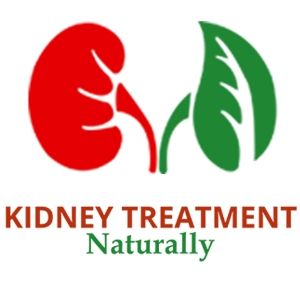What are the risk factors for end-stage renal disease?End-stage renal disease is the last stage of chronic kidney disease, often called kidney failure. Chronic kidney disease is the gradual loss of kidney function over time. It might take years for you to know that your kidney function is not accurate. Most people only get to know about ESRD or kidney failure when they have progressed to stage 4 or 5 usually. But by that time, it becomes impossible to reverse the damage. So, it is essential to know about the risk factors that may pose a threat to your kidneys. This will help avoid the most serious morbidities linked to end-stage renal disease.
A risk factor is something that likely increases your chances of getting a health problem. The more you have, the greater are the chances of getting the end-stage renal disease.
Diabetes and high blood pressure are the two leading causes of kidney disease. Not only are they the cause, but also considered risk factors. It is because either condition elevates your risk of getting chronic kidney disease.
Diabetes
Diabetes is the prime cause of kidney disease. During diabetes, the body has a hard time making or using insulin. When your body does not use sugar the right way, too much sugar stays in the blood, which can lead to chronic kidney disease over time.
High Blood Pressure
High blood pressure is yet another cause of kidney disease. Hypertension means the blood flow is quite high, and the heart is working too hard to pump the blood. When blood flows too forcefully through the tiny blood vessels in your kidneys, this can lead to wear and tear in them. Over time, this can lead to chronic kidney disease.
Other risk factors include:
Having a family member with kidney disease
Certain people are more at risk of kidney disease because they have a family member with ESRD. Mainly the first line of the family, either your father, mother, brother, sister are at the risk of kidney disease, your chances also increase. Certain genes can increase your chances of getting kidney disease. Diabetes and high blood pressure also run in families and can increase your risk of getting kidney disease.
Being over 60 years old
Aging also results in lost kidney function over time. People who are in their 60’s or more are likely to have diabetes and high blood pressure. Both the conditions are known to have risked ESRD. Also, with age, the nephrons in the kidneys lose their function and decrease in numbers, so this also puts you at risk.
Heart disease
Both heart disease and kidney disease run simultaneously, which means if you have one, the risk of other multiplies. If your heart is not working well as it should, this makes it hard for the kidneys to do their job and vice-versa.
Being obese
Obesity also elevates the risk of developing end-stage renal disease many times. Obesity puts you at the risk of diabetes and high blood pressure, which means a greater risk of kidney disease too.
Smoking
Smoke raises your blood pressure suddenly. The waste and toxins produced post smoking increase the pressure on the kidneys to work hard. When a blood vessel is blocked, your kidneys cannot get the blood flow they need, and this can cause damage, which can lead to chronic kidney disease.
Alcohol
Likewise, it is alcohol also which pressurizes the kidneys by racing blood pressure. Alcohol puts your kidneys and the heart at risk, so you should avoid them both.
Having a history of acute kidney injury (AKI)
Acute kidney injury is the sudden instance of kidney failure over hours or days. People who have had acute kidney injury before are more at risk for chronic kidney disease than people who have never had AKI.
Stress
Chronic stress also puts you at risk of kidney disease. Chronic stress and anxiety pressurize the internal organs of the body, like your heart and the kidneys, to work hard. This can perhaps be due to damage to the blood vessels due to stress.
You can progress to ESRD with or without the factors listed below. First thing first, you need chronic kidney disease treatment in Ayurveda to get rid of ESRD completely. The treatment helps ensure that kidney function is revived without compromising on the quality of life. One of the best approaches for kidney failure is Ayurveda only because it works on the root cause simply than on attenuating the signs only.
If you want treatment for yourself, you can get in touch with us at Kidney Treatment Naturally.
About This Author | Bhuvan Singh
I am Bhuvan Singh from New Delhi, the city beautiful.
Joined: January 31st, 2020
|
|
Article Directory /
Arts, Business, Computers, Finance, Games, Health, Home, Internet, News, Other, Reference, Shopping, Society, Sports
|